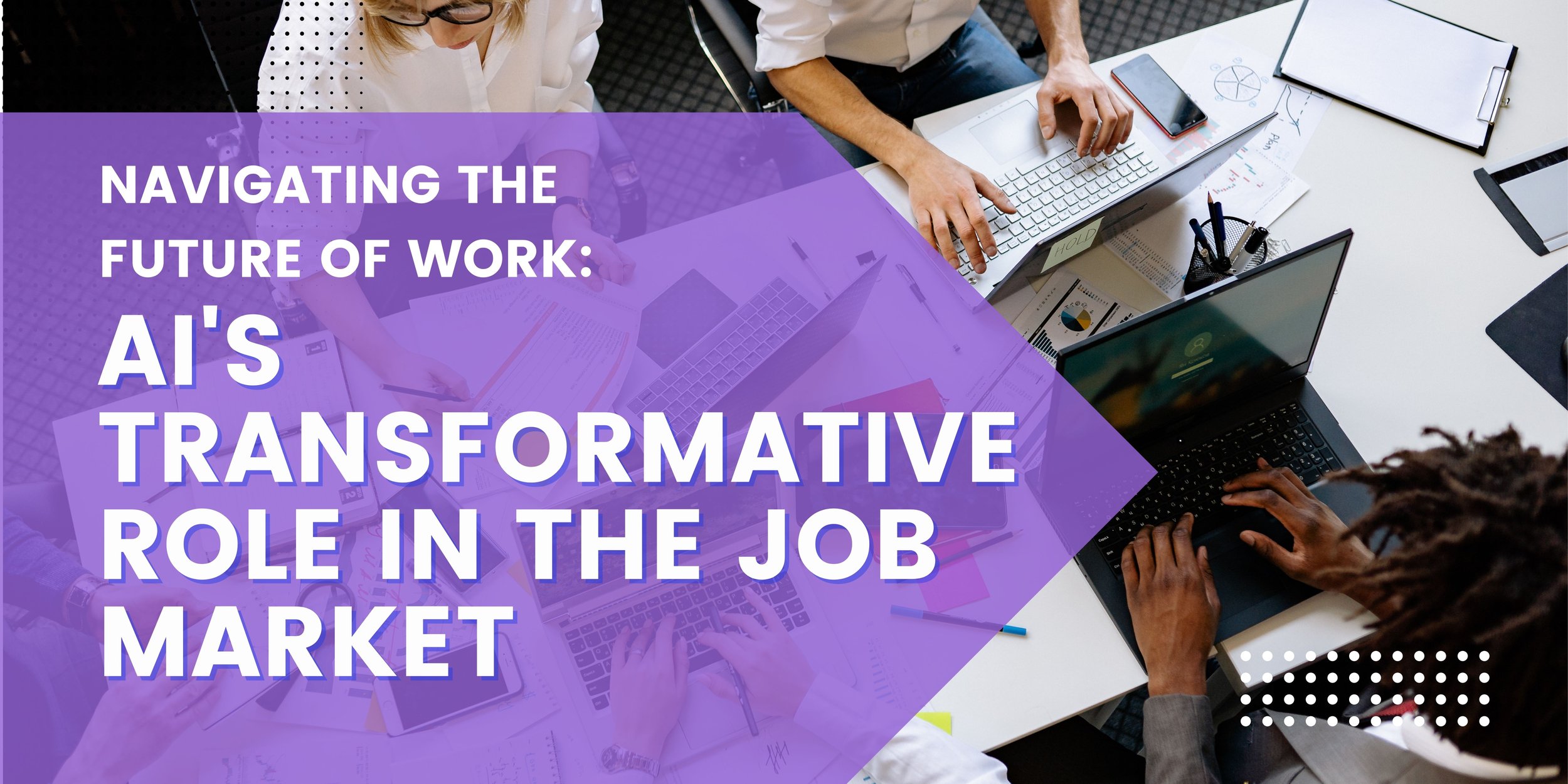Navigating the Future of Work: AI's Transformative Role in the Job Market
In an era where technology rapidly redefines the landscape of our lives, Artificial Intelligence (AI) emerges as a pivotal force in the evolution of work. The integration of AI in various industries is not just a futuristic concept but a present reality, reshaping job roles and creating new opportunities. This post aims to demystify the impact of AI on the job market, highlighting the importance of adapting and upskilling in the age of AI-driven innovation.
The AI Revolution in the Workplace:
AI's influence on the job market is profound and multifaceted. In sectors like manufacturing, AI-driven automation has enhanced efficiency and safety, shifting the focus from manual labor to supervision and system management. In customer service, chatbots and AI assistants provide 24/7 support, allowing human employees to tackle more complex, creative tasks.
Yet, the advent of AI has sparked concerns about job displacement. While it's true that certain repetitive tasks are being automated, AI is concurrently creating new job categories. Roles in AI and machine learning, data analysis, and AI ethics are on the rise, reflecting the need for human oversight and strategic thinking in the AI landscape.
The Synergy of AI and Human Creativity:
The unique strength of AI lies in its ability to process vast amounts of data quickly and accurately, a task challenging for humans. However, AI lacks the creative and emotional intelligence inherent to humans. This complementary relationship underscores the potential for AI and humans to work in synergy, not in opposition. For example, in creative industries like marketing and design, AI can handle data-driven tasks, allowing humans to focus on creative and strategic aspects.
Upskilling for the AI Era:
Adapting to the AI-augmented workplace requires a focus on upskilling and lifelong learning. Skills such as critical thinking, problem-solving, and emotional intelligence are becoming increasingly valuable. Additionally, learning the basics of AI and data literacy can empower workers to collaborate effectively with AI tools.
Educational institutions and companies are recognizing this shift, offering courses and training programs in AI and related fields. These initiatives aim to equip the workforce with the skills necessary to thrive in an AI-enhanced job market.
AI Ethics and Job Creation:
As AI continues to advance, ethical considerations and regulations are crucial. Ensuring that AI deployment in the workplace is fair, transparent, and inclusive is paramount. Moreover, AI's role in creating sustainable job growth is a topic of ongoing research and policy development.
Conclusion:
AI's impact on the job market is a testament to the dynamic nature of technology and work. Rather than viewing AI as a threat to employment, it's more constructive to see it as a catalyst for transformation and growth. By embracing AI, upskilling, and focusing on the human-AI partnership, we can navigate this new era with confidence and optimism.
Stay informed and prepared for the future of work with AI. Join our ClubAI Plus community for insights, resources, and discussions on navigating the evolving job market.

